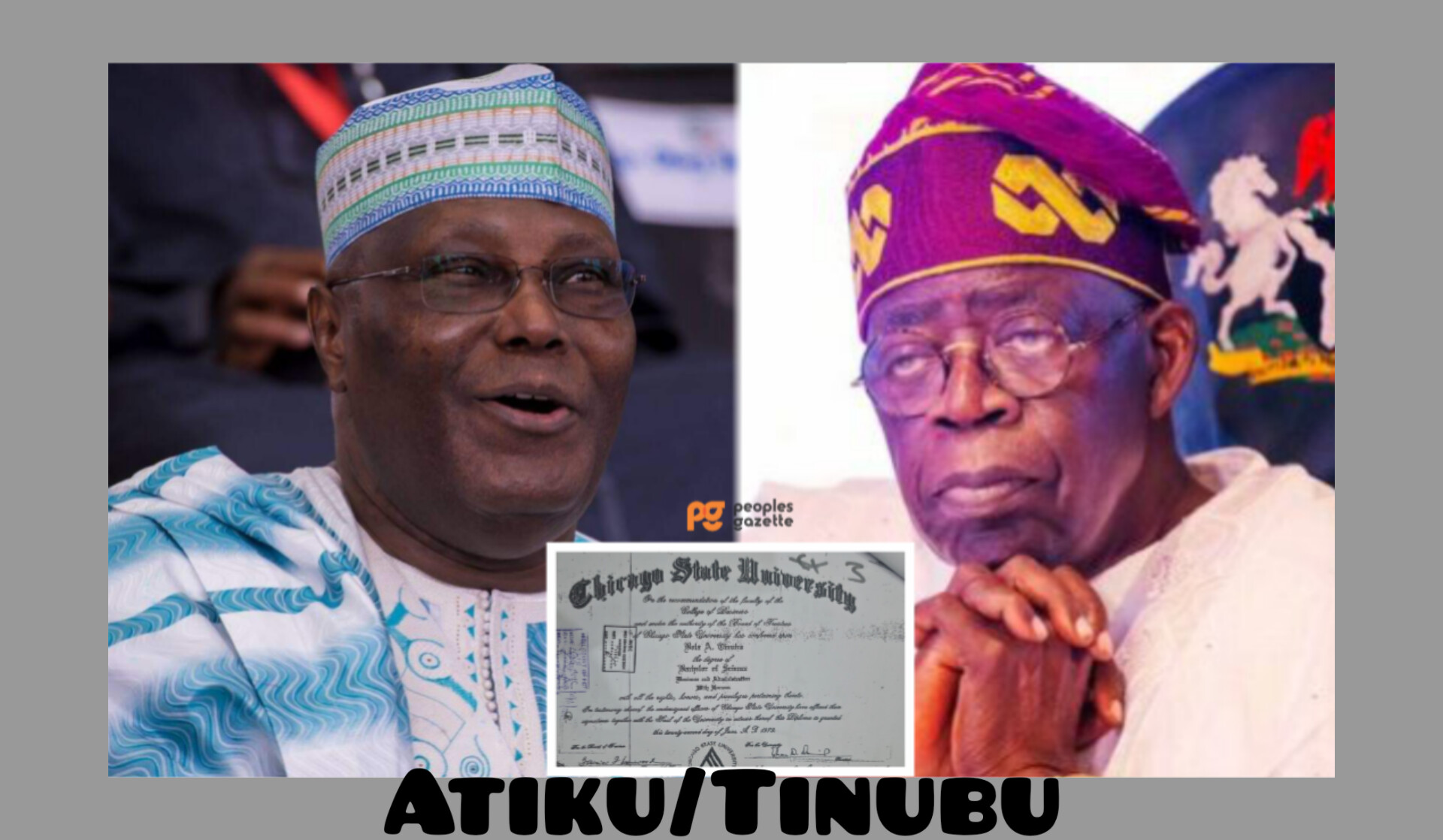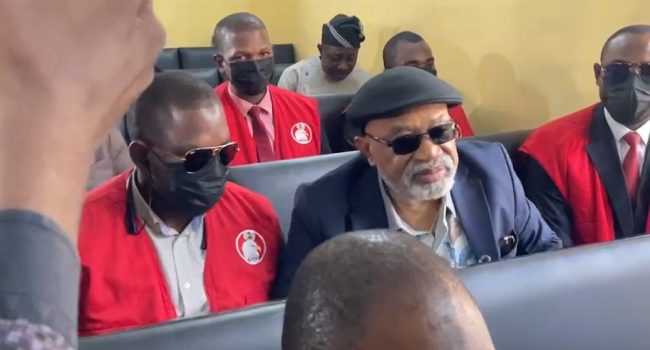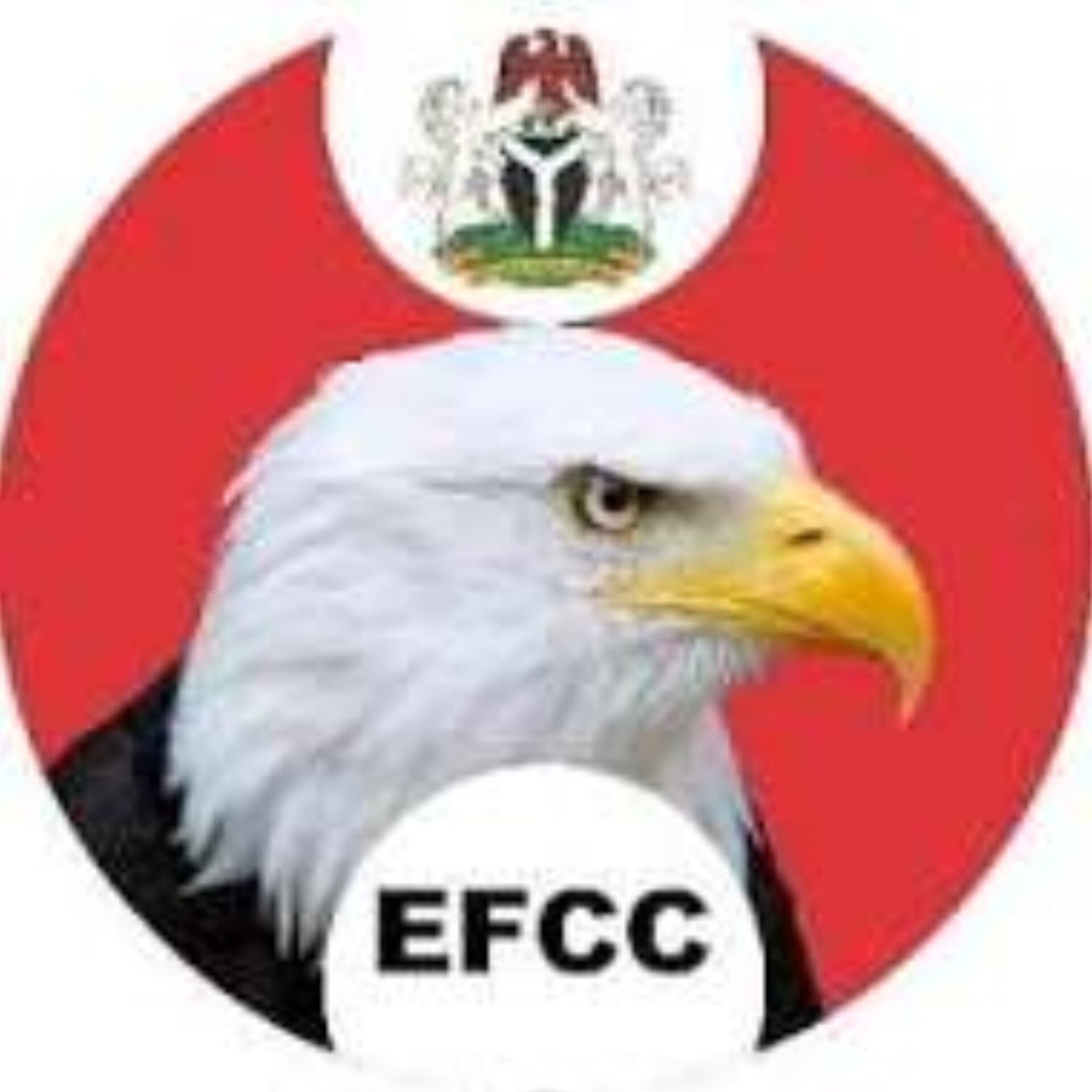The Chicago State University was able to locate and produce three out of the four sets of documents requested concerning Mr Tinubu to Atiku.
The Chicago State University (CSU) has finally released the academic records of President Bola Tinubu to his pollical opponent, Atiku Abubakar, in line with an order of a United States court.
Atiku, the presidential candidate of the opposition Peoples Democratic Party (PDP) in Nigeria’s 25 February election, had requested the documents to back his allegation of forgery of CSU certificate against Mr Tinubu. It would mean Mr Tinubu was not qualify to run for the election, which he won, if the allegation is successfully proved against him.
The university, on Monday, presented to Atiku’s legal team, a cache of documents connected to Mr Tinubu’s education at the institution and copies of certificates with redacted names issued to other persons about the same time the Nigerian president finished from the school in 1979.

It also contained Mr Tinubu’s admission records, and a letter dated 27 June 2022 confirming that he attended the university from August 1977 and June 1979 majoring in accounting. The letter said Mr Tinubu was awarded Bachelors of Science in Business Administration with Honours on 22 June 1979.
PREMIUM TIMES reported that the District Court in Northern Illinois, had in its judgement delivered on Saturday, given the university up till 12 noon on Monday to deliver the documents to Atiku.
The judge, Nancy Maldonado, gave the other after dismissing Mr Tinubu’s objection in the judgement.
Ms Maldonando dismissed Mr Tinubu’s objection to the 20 September decision of a magistrate judge of the court, Jeffery Gilbert.
The judge fully affirmed Mr Gilbert’s ruling, ordering the CSU to release Mr Tinubu’s academic records as requested by Atiku. She insisted Atiku had the right to have access to the records.
Compliance
Complying with the court order on Monday, the university produced four sets of documents copies of which went viral online on Monday. Phrank Shuaibu, a spokesperson to Atiku, confirmed the documents as those received from the university to PREMIUM TIMES.
In a deposition detailing its compliance with the court order, the university confirmed it was able to grant three of Atiku’s four requests.
Responding to one of the requests it granted, the university said, “after diligent search”. it was able to locate and produce seven different certificates for Bachelor of Science degree it issued in 1979.
Atiku had apparently requested the documents to compare and contrast them with the one presented by Mr Tinubu as his for the 2023 presidential election.
The university also handed to Atiku’s team, documents relating to Mr Tinubu and certified by an official of CSU, Jamar C. Orr, a lawyer.
The university similarly produced, “after diligent search”, copies of three other diploma certificates issued to other students other than Mr Tinubu in 1979.
This was in response to Atiku’s request for “true and correct copies of any diplomas issued by CSU (other than to Mr Tinubu) that contain the same font, seal, signatures, and wording (other than the name of the recipient and the specific degree awarded)”. Atiku sought these documents to compare and contrast them with the one Mr Tinubu claimed to have obtained on or about 22 June 1979.
But the university said it was unable to locate “a copy of the original diploma it prepared for Mr Tinubu in 1979” as requested by Atiku.
This was the kernel of Atiku’s request which is at the heart of the issue he intends to use the documents for in his legal challenge of Mr Tinubu’s victory at the 25 February presidential election.
The university said it “does not in the ordinary course keep copies of student diplomas, and after diligent search cannot locate a copy of the original diploma it prepared for Mr. Tinubu in 1979, hence has no documents responsive to this request.”
Atiku’s battle with Tinubu
Atiku had asked for the documents for use in Nigerian courts to support his argument that Mr Tinubu forged a diploma certificate he claimed to have obtained from CSU in 1979 and submitted to Nigeria’s electoral body, INEC, for the 2023 presidential election.
This, Atiku argued, goes to the root of Mr Tinubu’s qualification to contest the last presidential election.
Although Atiku lost his case against Mr Tinubu at the Presidential Election Petition Court which delivered its judgement in early September, he hopes to reintroduce the issue backed with the documents from the CSU in his appeal which he is pursuing against the election court’s decision at the Nigerian Supreme Court.
Atiku had told the US district court that he had up till 5 October to file the documents from the CSU against Mr Tinubu at the Supreme Court in Nigeria.
Mr Tinubu mounted stiff opposition to the release of the documents to Atiku, arguing that “the Nigerian election proceedings and the Nigerian courts” had explicitly rejected the documents Atiku sought to obtain and tender in his case aimed at overturning the results of the 25 February presidential election.
Mr Tinubu’s second reason was that Atiku’s request “is unduly intrusive because it allows Applicant (Atiku) to conduct a fishing expedition into Intervenor’s private, confidential, and protected educational records.”
ut dismissing Mr Tinubu’s objection on Saturday, Ms Maldonado said she was only affirming Atiku’s right to have access to the CSU documents, not confirming the merit of his allegations against the Nigerian president or his comments on the validity of the country’s presidential election.
“In reaching this conclusion, the Court emphasises that it is expressing no view on the merits of Mr Abubakar’s underlying claims regarding President Tinubu or his graduation from CSU, or on the validity of the Nigerian election.
“Nor is the Court taking any position on what any of the documents or testimony from CSU may or may not ultimately show. The Court simply finds, on the narrow question before it, that Mr Abubakar is entitled to the production of documents and testimony that he seeks from CSU,” a summary of the judgement read in part.
Culled from Premium Times




